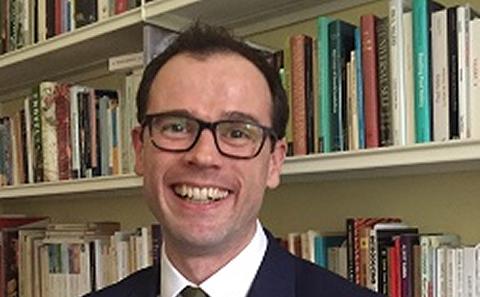Chopin between Proust and Gide Seminar

- Time:
- 16:00
- Date:
- 17 March 2021
- Venue:
- Online via Microsoft Teams
For more information regarding this seminar, please email Tracy Storey at tps@southampton.ac.uk .
Event details
Part of the 2020/21 seminar series organised by SCNR.
This seminar is given by Professor Adam Watt from the University of Exeter.
The intertwining of the creative, artistic lives of Marcel Proust (1871-1922) and André Gide (1869-1951) is well known. Both men made major, highly original contributions to twentieth-century literary culture; both were extraordinarily well versed in the Western literary and musical traditions that came before them. Gide famously rejected the first volume of Proust’s great novel A la recherche du temps perdu (1913-1927) for the Nouvelle revue française imprint when Proust was first seeking a publisher in 1913 (though the NRF did take on the whole cycle as of 1919). A common thread to their parallel lives was their love of music. Gide played the piano and immersed himself in music throughout his adult life, while Proust would pay musicians to play cherished pieces in his sleeping quarters as he lay in bed, transfixed. Both writers had a keen interest in Chopin, though this has never been comparatively studied. In my paper I will consider the intersections and divergences of the two writers’ engagements with the composer. On one hand I will explore Proust’s successive writerly accounts of Chopin—first in his early ‘Portraits de peintres et de musiciens’, published in 1896, then via the (perhaps more nuanced) references that make their way into A la recherche du temps perdu. Alongside these literary inscriptions of the composer-performer I will explore Gide’s Notes sur Chopin, first published in 1931, which distil a lifetime’s familiarity with Chopin’s work into around thirty compressed pages of critique, observation and apologia. Gide concerns himself above all with how Chopin should and shouldn’t be performed, whilst Proust in his novel takes a greater distance from such practical matters and uses the composer as a vehicle for a range of aesthetic-moral considerations. Edward Said, in his Musical Elaborations (1991) argues that ‘The fate of Chopin’s work is egregious because he has survived not as the astonishing revolutionary he really was in all sorts of musical and cultural ways, but as a pianist’s composer, at once effeminate and trivial. The word salonpretty much sums him up.’ Proust, of course, is particularly associated with the salons of the belle époque and I will consider how far Proust’s handling of Chopin may be seen as contributing to this reductive view of the composer. In his Notes, Gide avers that while there may be greater musicians than Chopin, none is ‘more perfect’. In the course of my paper I will seek to demonstrate what light is shed on Chopin via these two contemporaneous accounts: one that comes to us from a writer who is a gifted and scrupulous listener, but not a musician (Proust) and the other that comes to us from a talented and conscientious musician, who is also a writer (Gide).
This seminar will take place via Microsoft Teams. Please ensure you book a place to receive the meeting link. The deadline for bookings is 1pm on the day of the seminar (17/03/21).